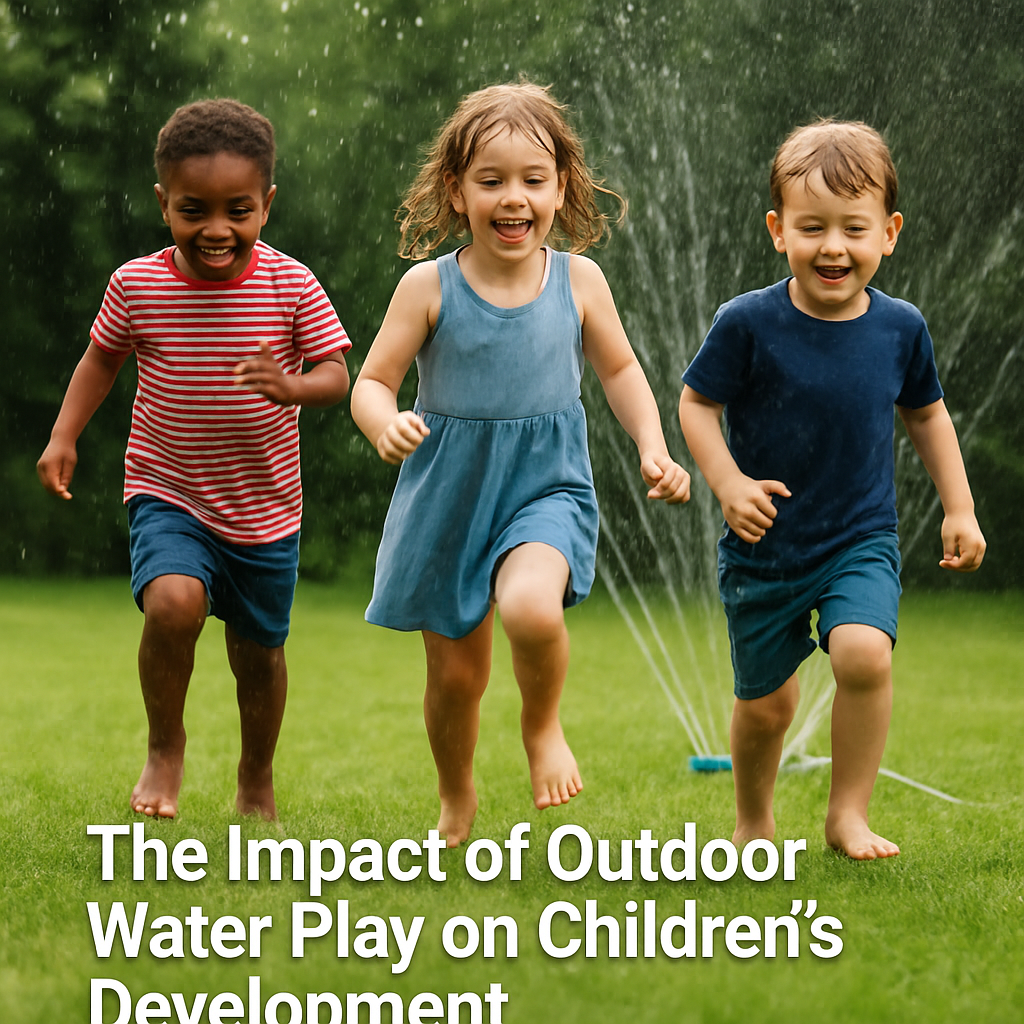
The Impact of Outdoor Water Play on Children’s Development
Share
Introduction
Splashing in a pool, chasing sprinklers, or playing with water balloons—these simple activities bring children pure joy. But outdoor water play is more than fun; it supports physical, cognitive, social, and emotional development. Researchers have long highlighted how sensory-rich play, especially involving water, can nurture learning and growth in early childhood.
Physical Development: Strength and Coordination
Water play often involves running, jumping, pouring, and balancing. These actions improve gross motor skills (like running and jumping) and fine motor skills (like filling small cups or squeezing water toys). A 2017 study in the International Journal of Environmental Research and Public Health found that outdoor play significantly boosts cardiovascular health and overall physical fitness in children.
Cognitive Growth: Early Science and Math Skills
Water naturally invites experimentation—children notice what floats, what sinks, or how water moves when poured. This is the foundation of STEM learning. According to Early Childhood Research Quarterly (2019), hands-on water activities enhance problem-solving, cause-and-effect understanding, and even early math concepts such as volume and measurement.
Sensory Exploration and Emotional Regulation
Water is a calming sensory medium. The sound, feel, and movement of water can help children regulate emotions and reduce stress. A 2020 review in Frontiers in Psychology noted that sensory play supports emotional self-regulation by giving children a safe outlet to process feelings.
Social Skills: Cooperation and Communication
Playing in water is rarely a solo activity. Children often share toys, take turns with sprinklers, or create group games. These moments build communication, empathy, and teamwork. A 2018 study in Child Development highlighted that cooperative play fosters social competence and peer bonding, both critical for long-term emotional health.
Connection to Nature
Outdoor water play also connects children to their environment. Whether in a backyard, park, or beach, children experience sunlight, fresh air, and natural rhythms. Research in Landscape and Urban Planning (2017) found that children who spend more time in natural water play settings show higher levels of curiosity, creativity, and overall well-being.
Closing
Outdoor water play is more than a summer pastime—it’s a multi-sensory learning lab. From strengthening muscles and sparking curiosity to building friendships and calming emotions, water play provides a holistic boost to child development. So next time the sun shines, let the kids splash—it’s healthy for body, mind, and spirit.
